Lesbos: The Shame of Europe
Report by Marc Roussel
Off the Turkish coast, the Greek island of Lesbos, gateway to Europe, is deaf to the hopes of migrants.
Twenty thousand Afghans, Syrians, Congolese, and others are piled on top of each other in the Moria camp, which was designed to house three thousand. It will be destroyed by fire shortly after our two visits. And immediately replaced with another even more claustral than the original. No question of hospitality, fellowship, sharing. And yet there we encounter women, men, children… people like us.
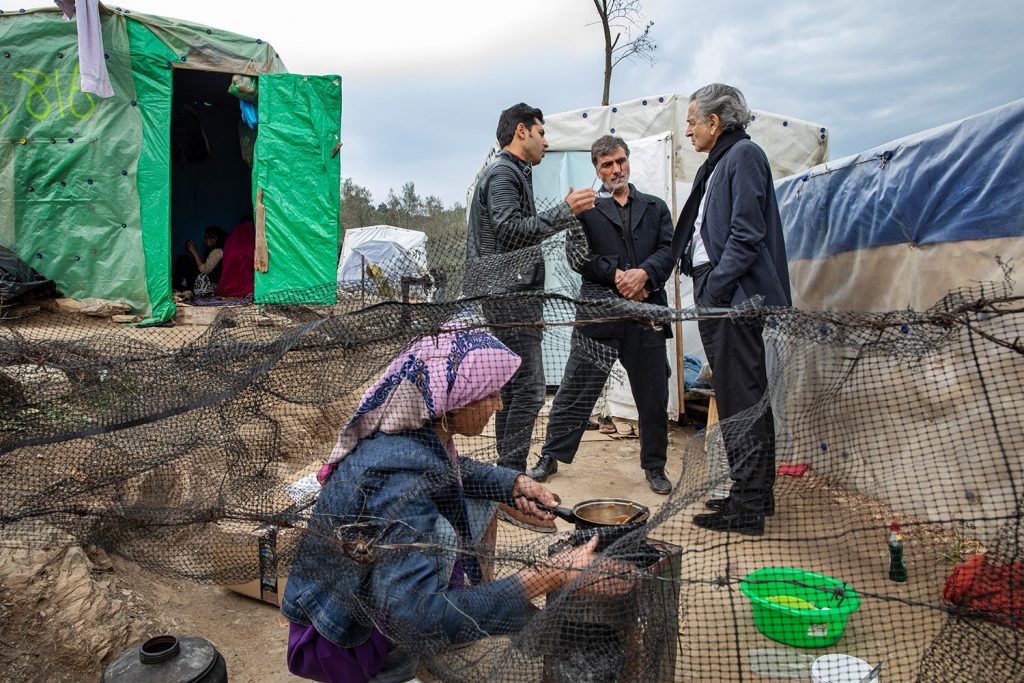
“We are in the Moria camp on Lesbos, one of Greece’s most beautiful islands, a place full of history and legend — and, today, Europe’s capital of pain.”
Bernard-Henri Lévy, The Will To See
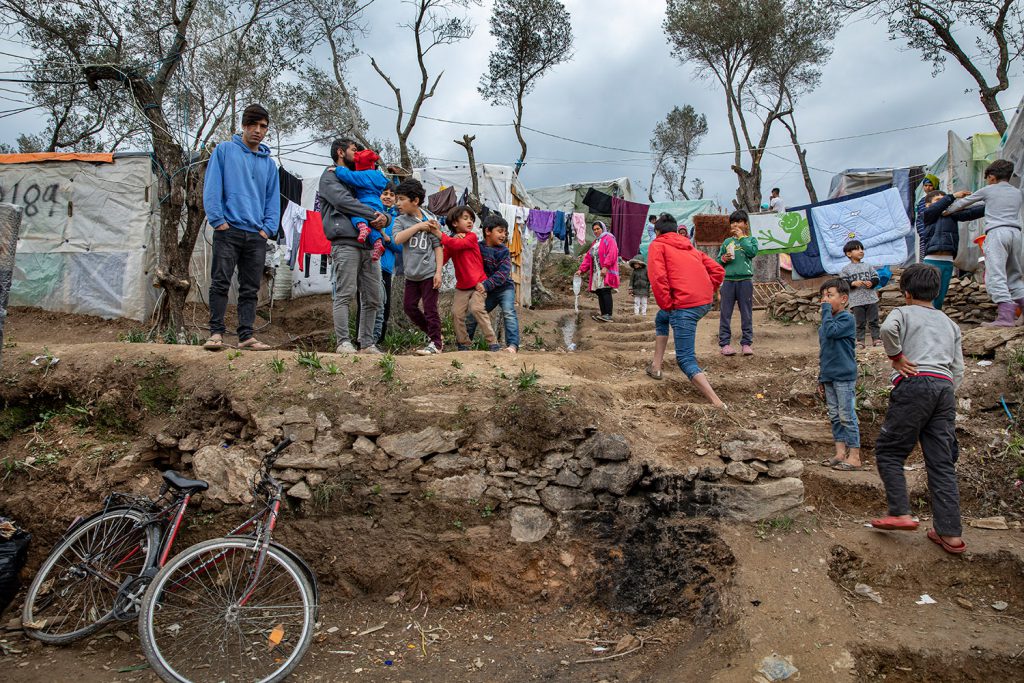
“I had been struck by a report from Doctors without Borders asserting that one of Moria’s distinguishing characteristics is child suicide.”
Bernard-Henri Lévy, The Will To See
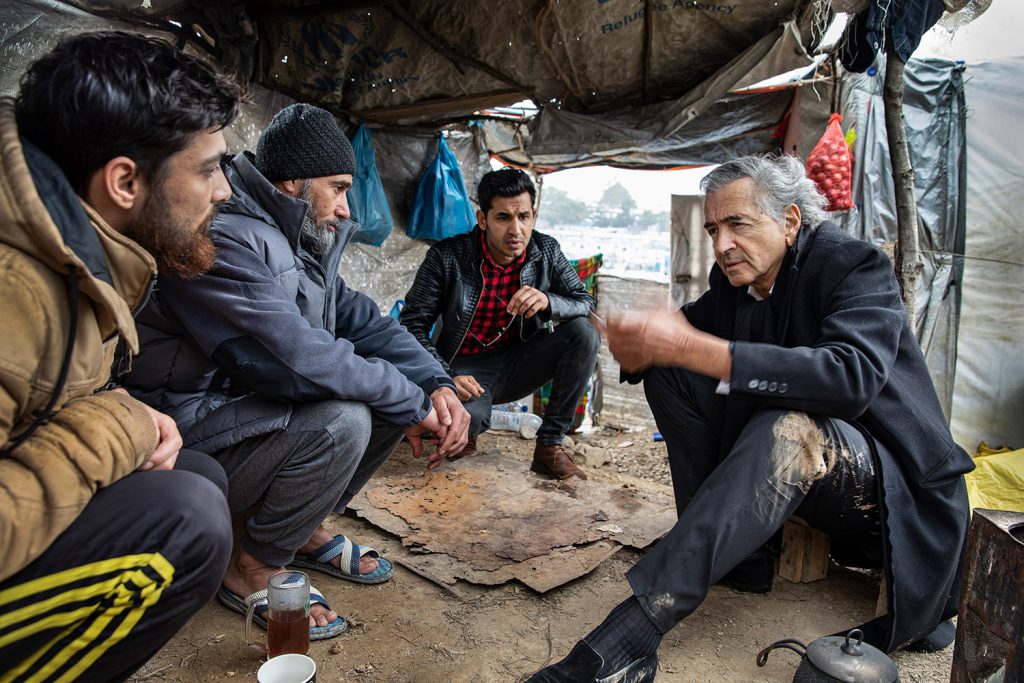
With Syrian refugees. In 2019, they were less than 10% in this “hot spot” funded by Europe but managed by Greece.
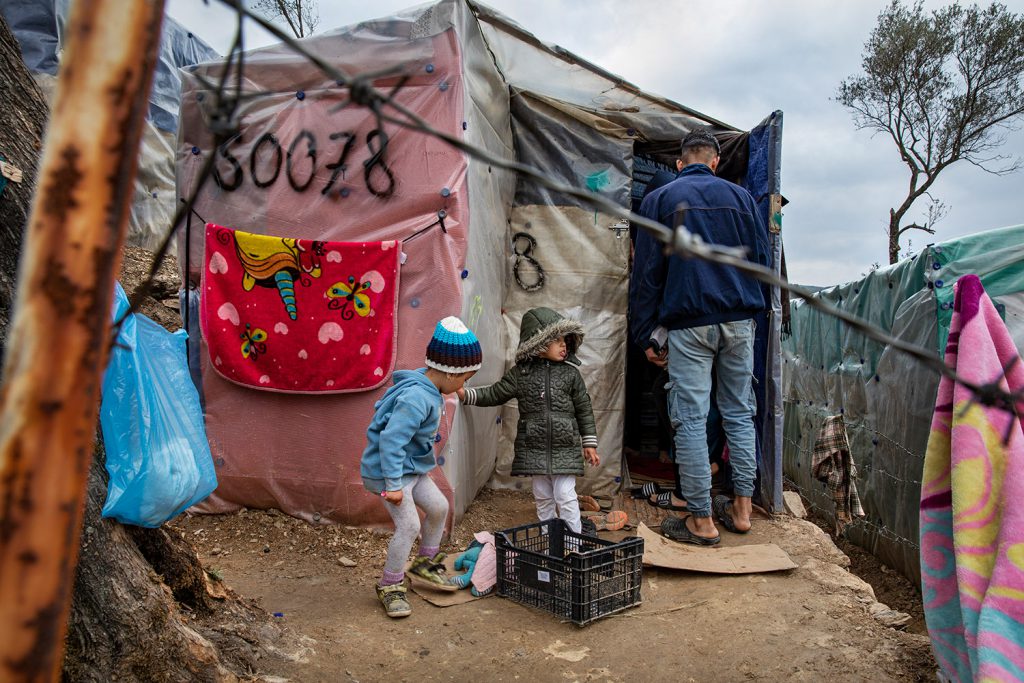
“It’s cold now at the end of May 2020. The rain, which comes in gusts and bursts, seeps through the badly joined pieces of the tent. A smell of humidity, unwashed bodies, and dirty water mingles with that of the vegetable stew simmering near the entrance to the tent.”
Bernard-Henri Lévy, The Will To See
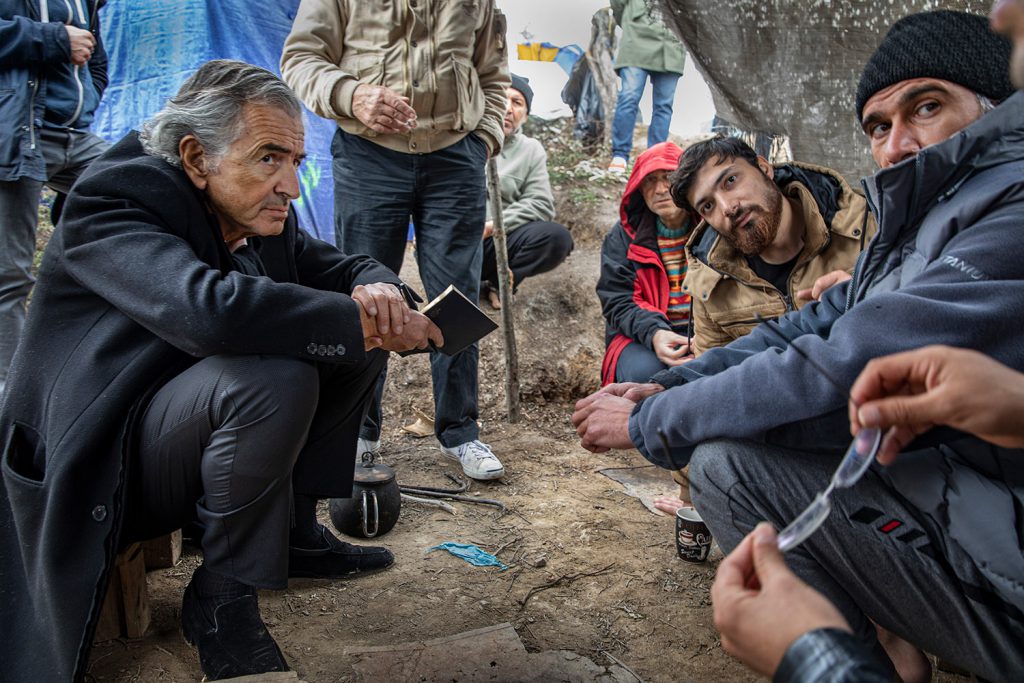
“We are within the confines of the camp, in the wild area known as the jungle, where some of the Syrians with whom Erdoğan threatened to inundate Europe last March washed up.”
Bernard-Henri Lévy, The Will To See
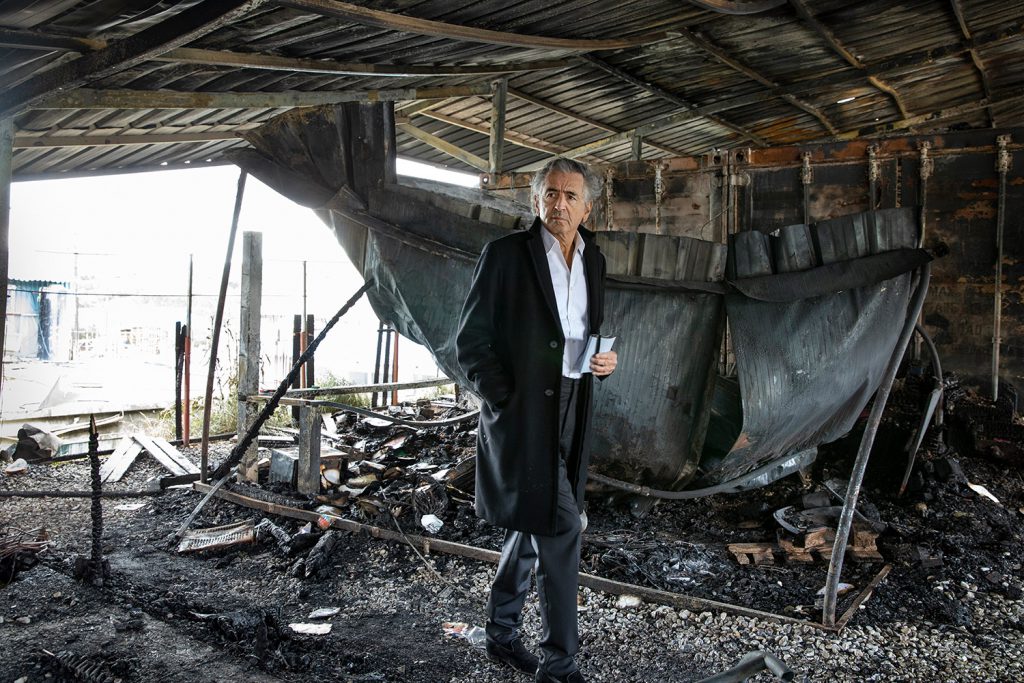
Three kilometers south of Moria, in the ruins of an arson attack, presumably carried out by far-right activists, on a migrant school in March 2020.
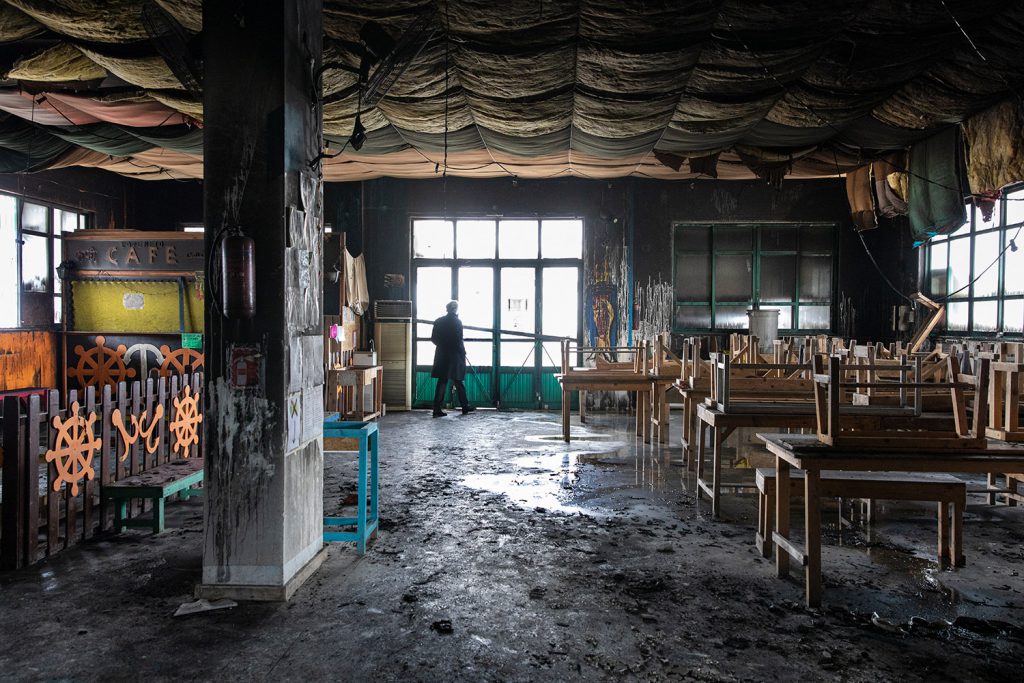
Assessing the damages…
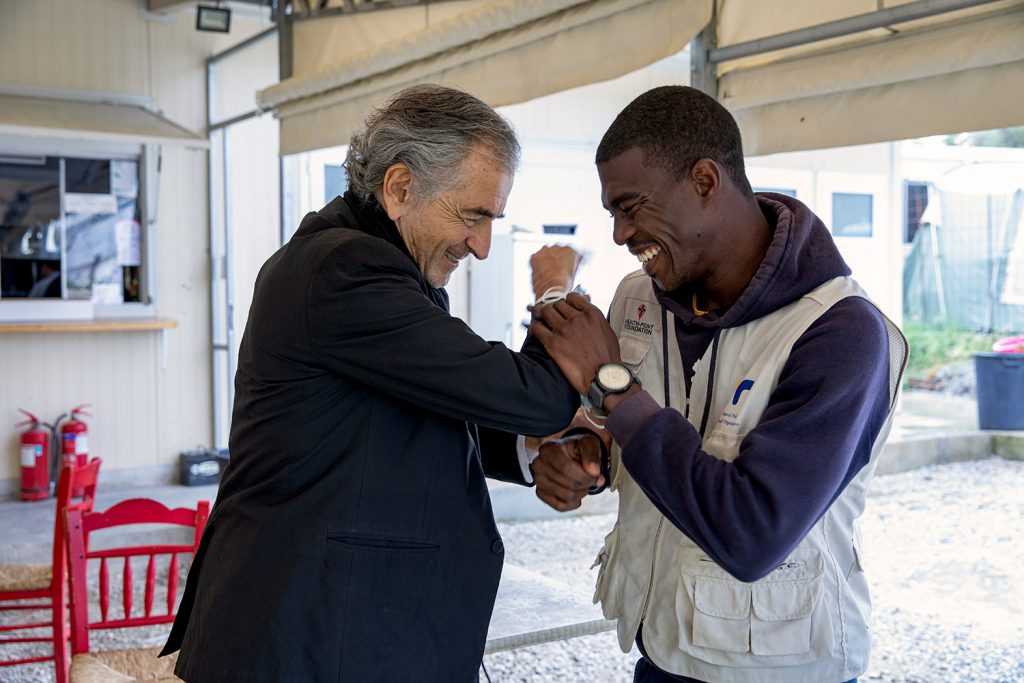
Sharing nice moments with Abdoulaye, a refugee from Cameroon who regained hope after finding a small job…
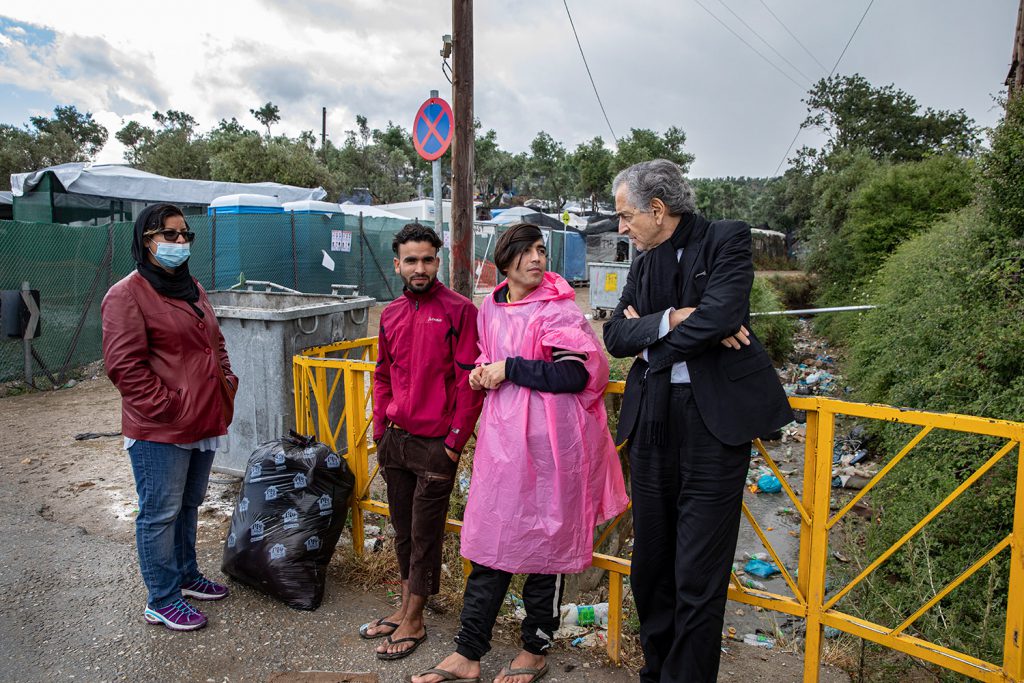
“I have seen many camps in my life. But rarely the boundless sadness on display here.”
Bernard-Henri Lévy, The Will To See
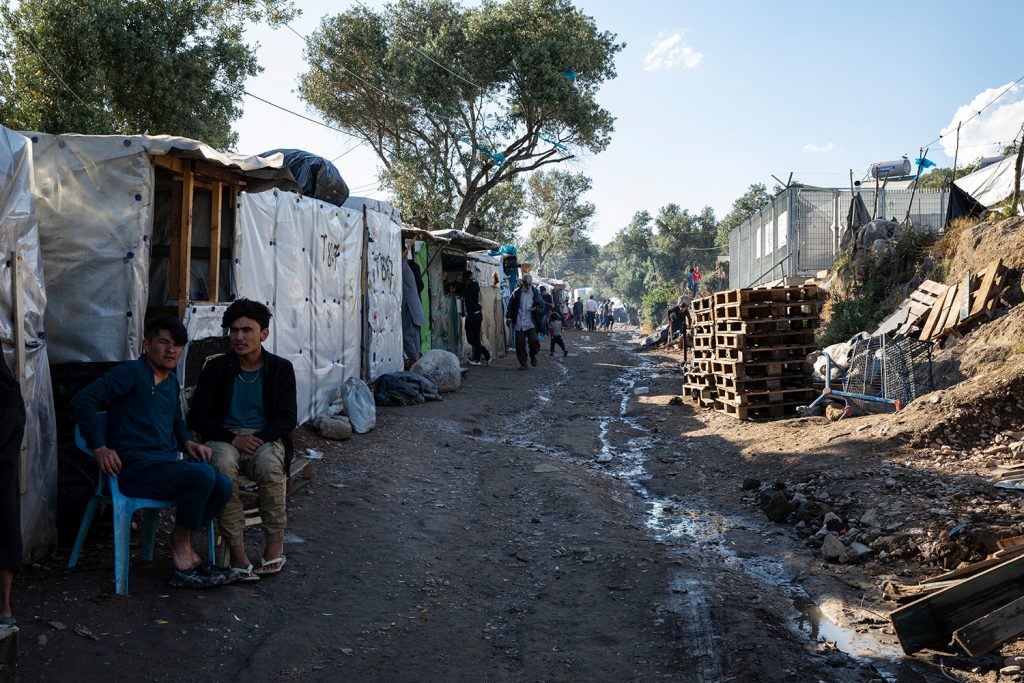
The “shopping street” of Moria camp, where on can find something to survive. The internal economy of the camp is organized there, despite the absence of running water or electricity.
“At Moria, water is the tragedy. The island, as I’ve said, is resplendent. Green. Blessed by the gods and by rain. But across the camp’s accursed acres, there is no running water. No wells, either. No cisterns that I could see. Just a few showers. At most twenty water stations, where people line up all day to fill their plastic bottles. One per person per day.”
Bernard-Henri Lévy, The Will To See
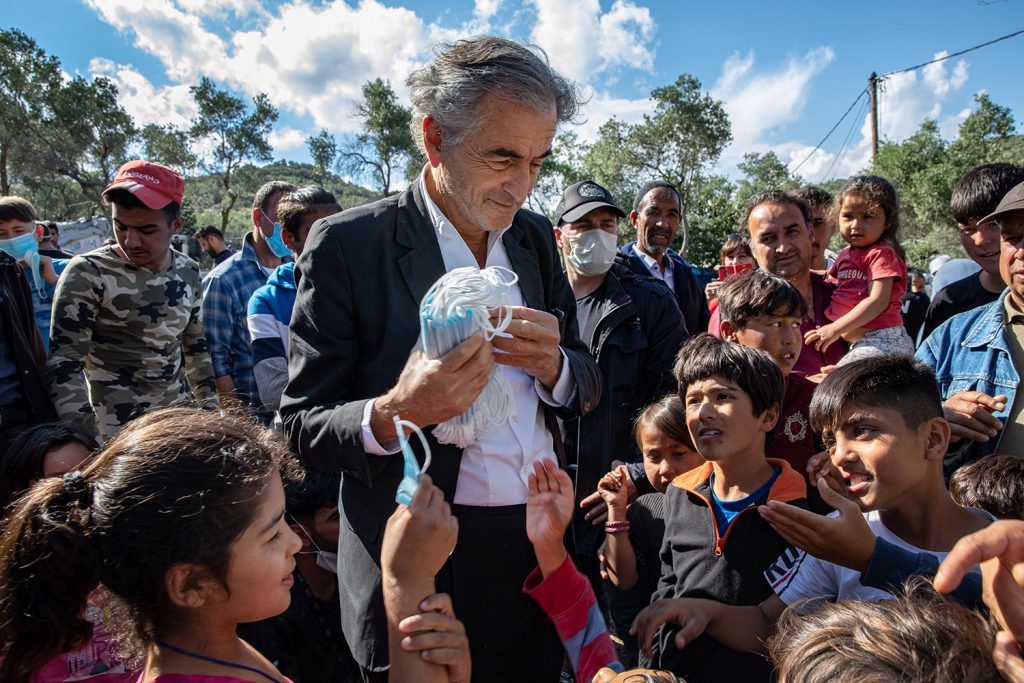
“I brought masks from Paris. […] The
excitement is about to turn into a brawl. […] The prize is to the one who can push the hardest, has the sharpest elbows, and can jump the highest, when I, after being shoved and almost knocked over, raise the package over my head and call out for calm. It turns out that this isn’t a distribution, it’s a party. Better than a party, it’s a happening that is both joyful and heartbreaking.”
Bernard-Henri Lévy, The Will To See
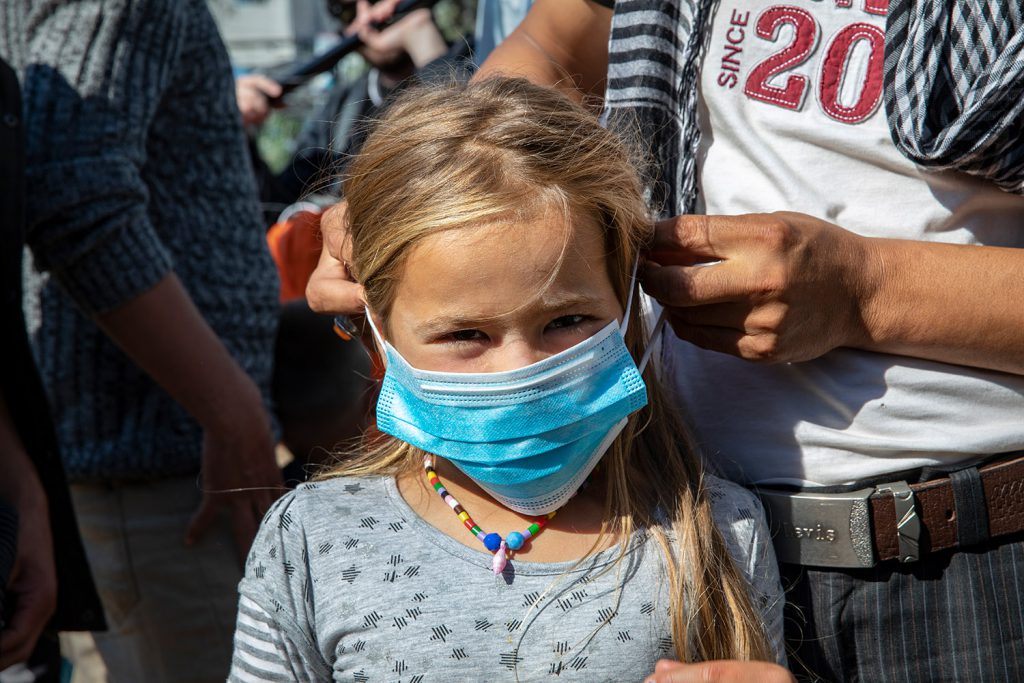
“I decide to watch as the children put on what now seem like Mardi Gras masks.”
Bernard-Henri Lévy, The Will To See
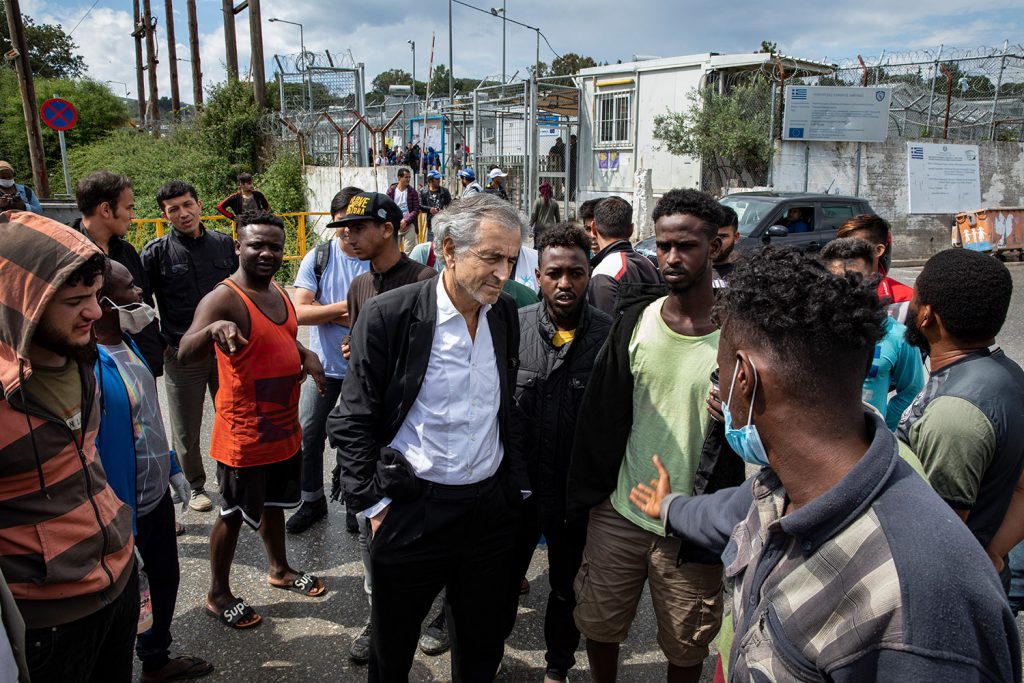
“Offer aid, of course. Tell the story. Relay, as best one can, the words of the afflicted.”
Bernard-Henri Lévy, The Will To See
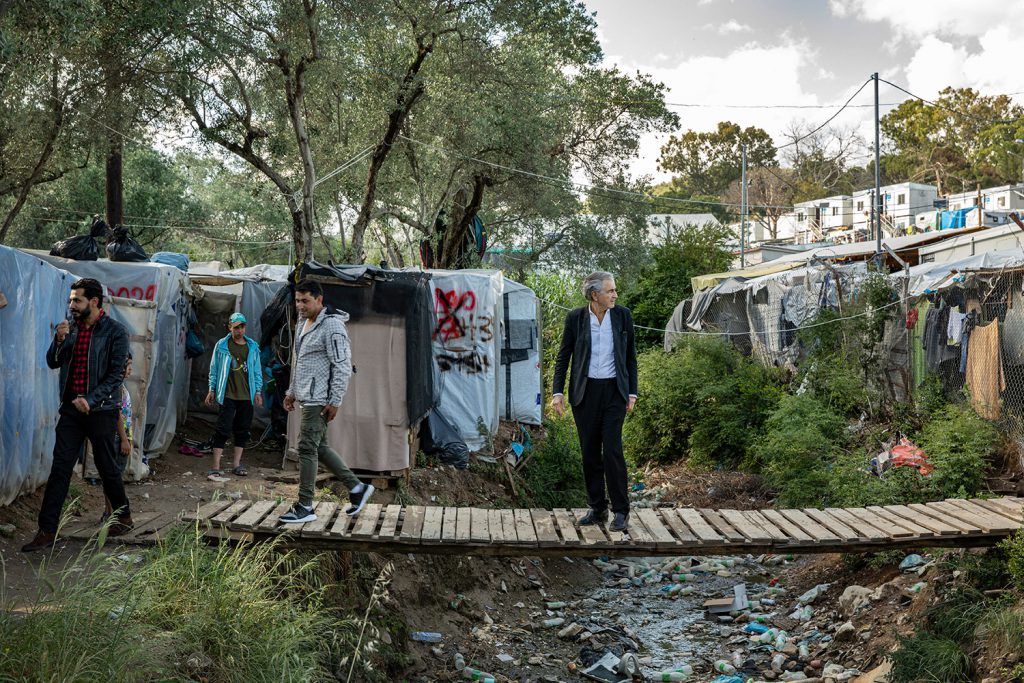
“But the worst are the latrines. […] there are the public latrines […] a collection of giant, construction-site porta-potties with the flushers out of commission and most of the doors too damaged to close. I go into one. Bowls spattered with excrement. Pits obviously clogged and infested with flies.”
Bernard-Henri Lévy, The Will To See
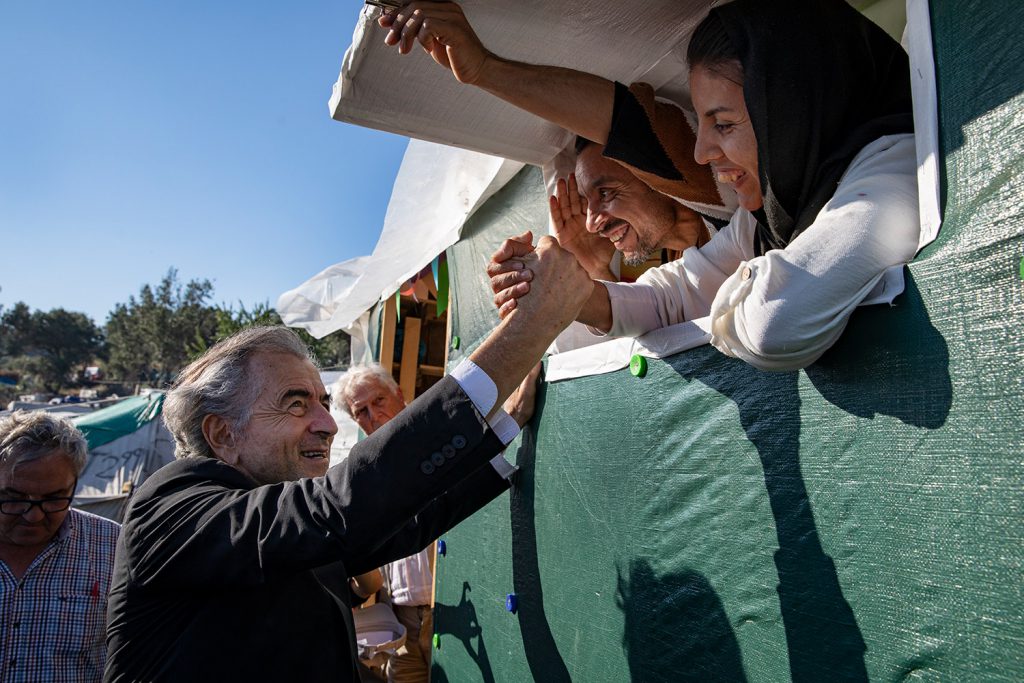
Fraternity with the refugees of the Moria camp. Gilles Hertzog behind.
“… there persists, among these sisters and brothers whom nothing and no one have succeeded in dehumanizing, acts of solidarity that allow life to continue.”
Bernard-Henri Lévy, The Will To See
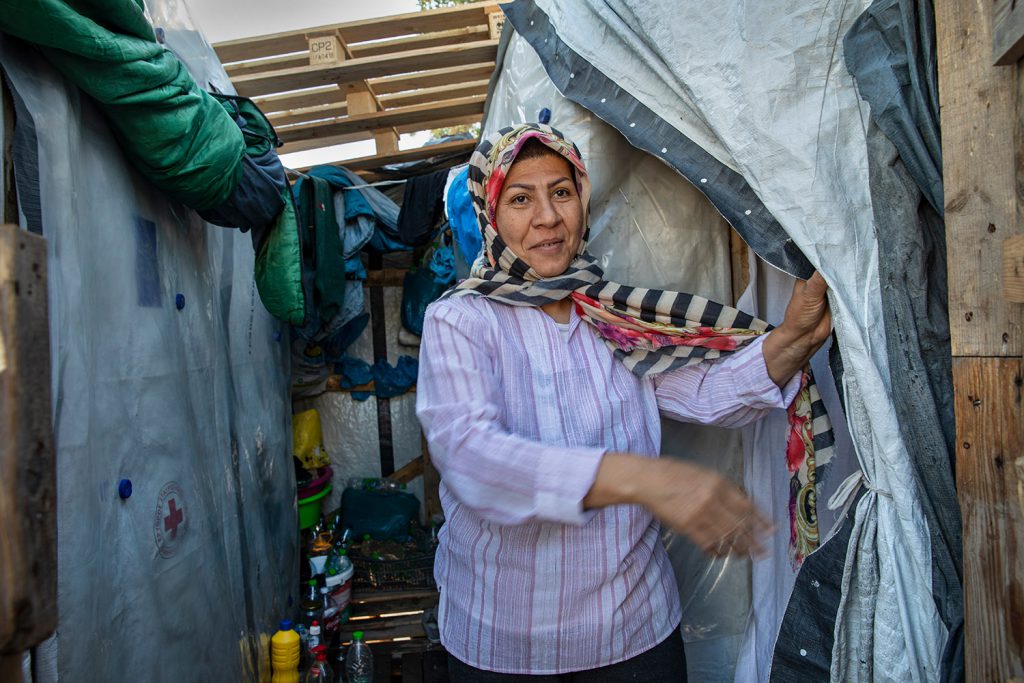
The shelter of this woman refugee in the Moria camp is a room for five people. The entrance, covered with pallets, is used as a kitchen.
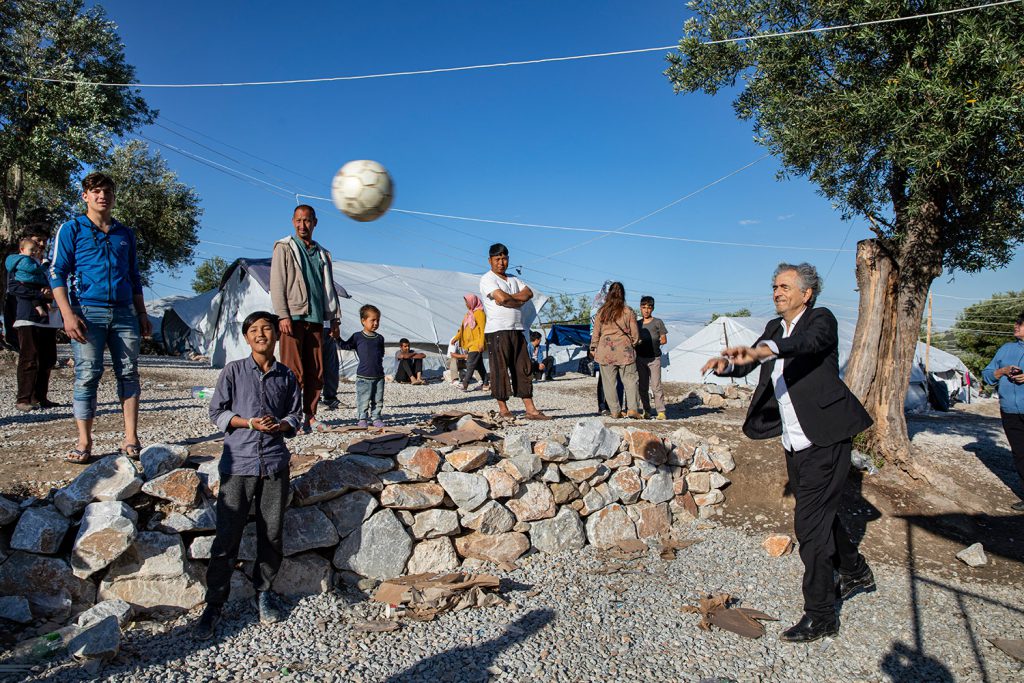
“… into the vacant lot farther up the road, where I go to kick the ball around with a group of kids.”
Bernard-Henri Lévy, The Will To See
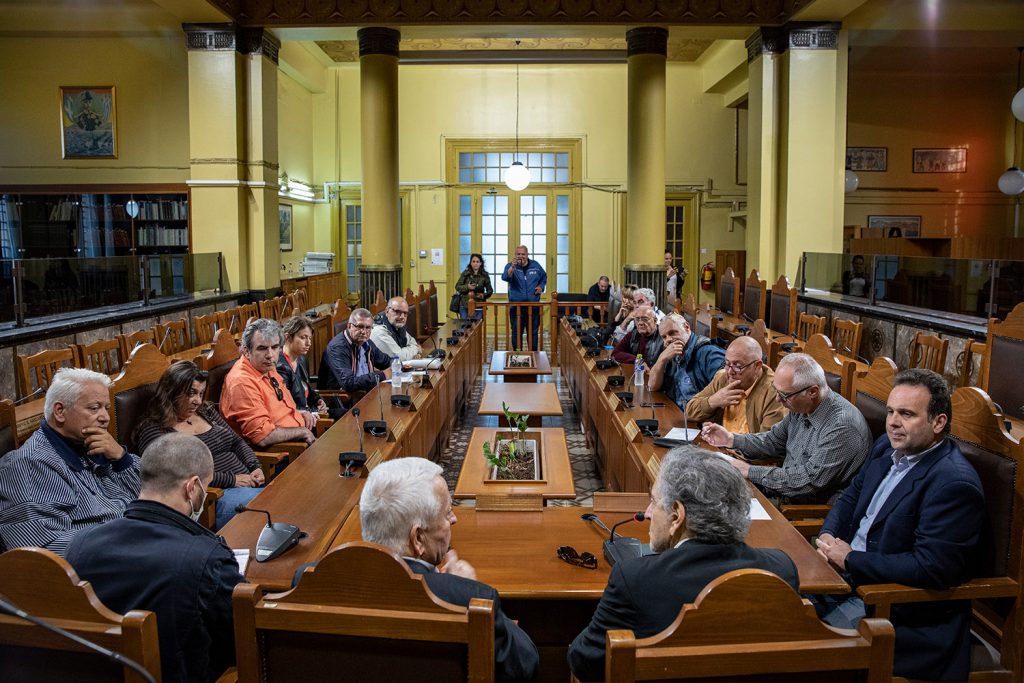
Meeting at the palace of the Governor of Lesbos, Constantinos Moutzouris (white hair, from behind) with his supporters and allies on the right and the far right.